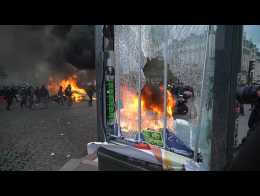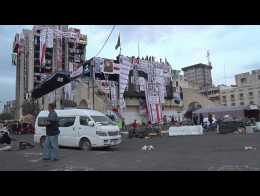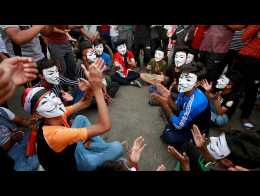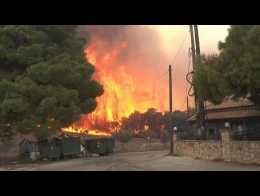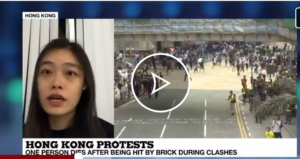
The countries hit by major protests in 2019
Gabriel Power, The Week, Nov 19, 2019
https://www.theweek.co.uk/104416/the-countries-hit-by-major-protests-in-2019
Millions have taken to the streets across the globe this year demanding change
From the students occupying university buildings in Hong Kong to activists overthrowing a 30-year dictatorship in Sudan, 2019 has seen a resurgence in the use of protesting as a tool for political and social change.
Sudan

In one of the year’s success stories, long-time Sudanese president Omar al-Bashir was removed from power in April after months of protests supported by government troops.
Despite fears that tensions following the revolution could spark a bloody civil war, Sudan’s interim military government and the opposition coalition signed a final power-sharing deal in August paving the way for a transition to a civilian-led government.
Lebanon

Widespread rallies opposing poor economic conditions broke out across Lebanon in late September, with protesters calling for the toppling of the Lebanese elite that had ruled the country since the 1980s.
A month later, Prime Minister Saad Hariri announced his resignation after less than a year in power, but unrest continues amid a “tense stalemate” between authorities and protesters, The Guardian says.
Bolivia

Protests came to Bolivia in October following left-wing President Evo Morales’s unprecedented decision to run for a fourth term. He was reportedly asked to resign by the military in controversial circumstances, with many believing that he was the victim of a coup.
Since Morales fled to Mexico, right-wing deputy senate leader Jeanine Anez has declared herself interim president. Unrest continues.
Chile

More than a million protesters took to the streets across Chile in mid-October over an increase in subway fares – protests which then spilled over into an airing of grievances over “long-standing frustrations”, Time magazine says.
But a brutal police crackdown characterised by “excessive use of force to torture, illegal raids and arbitrary detention” has marred the rallies and stoked further tensions, Amnesty International says.
Egypt

After years of uneasy calm, Egyptians returned to the streets in September calling for the removal of President Abdel Fattah el-Sisi, who has “imposed strict austerity measures since 2016”, The Guardian says.
Egypt has stringent anti-protest laws and police have responded with tear gas and live bullets, with thousands of protesters arrested. Sisi has remained defiant and little has changed.
Ecuador

Harsh austerity measures also brought Ecuadorians out in force in October, galvanised by President Lenin Moreno’s decision to repeal fuel subsidies, which have been in place since the 1970s.
Protesters have called for the return of the subsidies and subsequently for Moreno’s resignation and an end to austerity. As of November, the reinstatement of the subsidies has been the only major change.
Spain

Europe has not escaped major unrest this year, with Catalonia once again becoming a battleground for activists seeking independence from Spain.
In October, Spain’s Supreme Court jailed nine Catalan separatist leaders over their role in the region’s 2017 independence referendum, prompting rioting in Barcelona and other major cities. Hundreds were injured and protests are ongoing.
Algeria

In April Algeria’s president, Abdelaziz Bouteflika, who had been in power for 20 years, resigned after weeks of street protests. Prime minister Ahmed Ouyahia was also forced to step down.
But according to the BBC, the president’s departure “was not enough for the predominantly young protesters” who are “calling for sweeping government reforms, accusing leaders of widespread corruption and state repression”.




